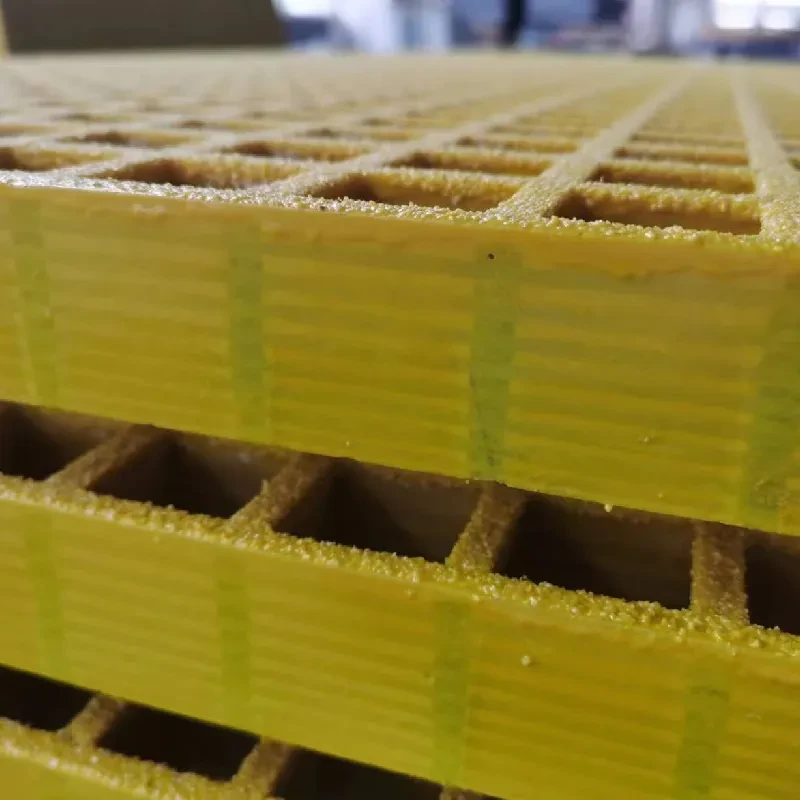loading...
- No. 9, Xingyuan South Street, Dongwaihuan Road, Zaoqiang County, Hengshui, Hebei, China
- admin@zjcomposites.com
- +86 15097380338
- Welcome to visit our website!
fiberglass water storage tank
The Benefits of Fiberglass Water Storage Tanks
In today's world, efficient water management is crucial for both residential and industrial applications. Among the many options available for water storage, fiberglass water storage tanks have gained prominence due to their unique properties and advantages. This article explores the benefits of fiberglass tanks, making them a preferred choice for various water storage needs.
Durability and Longevity
One of the standout features of fiberglass water storage tanks is their exceptional durability. Fiberglass, a composite material made from fine glass fibers and resin, is highly resistant to corrosion, rust, and decay. Unlike traditional materials such as metal or concrete, fiberglass does not react with water and is less likely to be compromised by environmental factors. This resistance to wear and tear translates to a longer lifespan, often exceeding 30 years with proper maintenance. By investing in fiberglass tanks, users can significantly reduce replacement costs and ensure a reliable water supply for decades.
Lightweight and Easy to Install
Another advantage of fiberglass water storage tanks is their lightweight nature. This characteristic simplifies transportation and handling, making installation less labor-intensive and more cost-effective. Unlike heavy concrete tanks that require extensive machinery for positioning, fiberglass tanks can often be moved and installed with minimal effort. This ease of installation not only saves time but also reduces labor costs, providing an overall efficient solution for water storage.
Customizable Designs
fiberglass water storage tank

Fiberglass tanks are incredibly versatile and can be customized to meet specific needs. They come in various shapes, sizes, and configurations, making them suitable for both large-scale industrial operations and smaller residential setups. Whether you need a tank for drinking water, irrigation, or industrial processes, manufacturers can tailor the design to accommodate your requirements. This flexibility ensures that you can find a solution that fits perfectly within your available space and aligns with your water storage needs.
UV Resistance
Exposure to ultraviolet (UV) rays can cause significant damage to many materials over time; however, fiberglass is inherently resistant to UV radiation. This property is particularly important for outdoor installations, where tanks may be subjected to direct sunlight. The UV resistance helps maintain the integrity of the tank and prevents the potential degradation of the material, ensuring that the stored water remains uncontaminated and safe for use.
Environmental Considerations
With growing concerns about environmental sustainability, fiberglass water storage tanks offer an eco-friendly option compared to traditional alternatives. The manufacturing process of fiberglass tanks is more energy-efficient than that of metal or concrete tanks, resulting in a lower carbon footprint. Additionally, fiberglass is recyclable, meaning that when tanks reach the end of their lifespan, they can be repurposed rather than ending up in landfills. This aspect makes fiberglass a responsible choice for environmentally conscious consumers.
Conclusion
In conclusion, fiberglass water storage tanks present a reliable, durable, and efficient solution for diverse water storage applications. Their extraordinary lifespan, resistance to corrosion and UV rays, lightweight nature, and customizable designs make them an attractive option for homeowners and businesses alike. As the demand for efficient water management continues to grow, investing in fiberglass tanks can provide a sustainable and effective way to meet water storage needs while also being mindful of environmental impact. Whether for agricultural, residential, or industrial purposes, fiberglass water storage tanks are set to remain a leading choice for many years to come.
-
The Rise of FRP Profiles: Strong, Lightweight, and Built to LastNewsJul.14,2025
-
SMC Panel Tanks: A Modern Water Storage Solution for All EnvironmentsNewsJul.14,2025
-
GRP Grating: A Modern Solution for Safe and Durable Access SystemsNewsJul.14,2025
-
Galvanized Steel Water Tanks: Durable, Reliable, and Ready for UseNewsJul.14,2025
-
FRP Mini Mesh Grating: The Safer, Smarter Flooring SolutionNewsJul.14,2025
-
Exploring FRP Vessels: Durable Solutions for Modern Fluid HandlingNewsJul.14,2025
-
GRP Structures: The Future of Lightweight, High-Performance EngineeringNewsJun.20,2025
